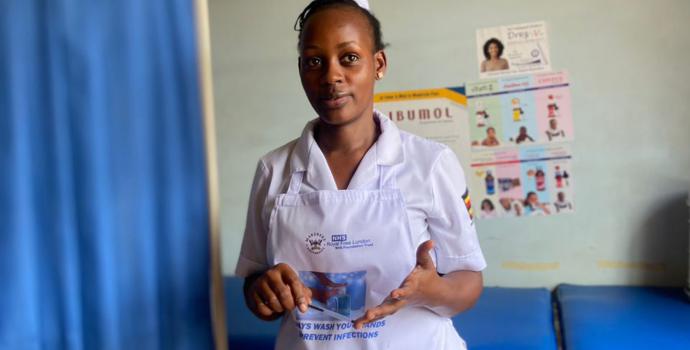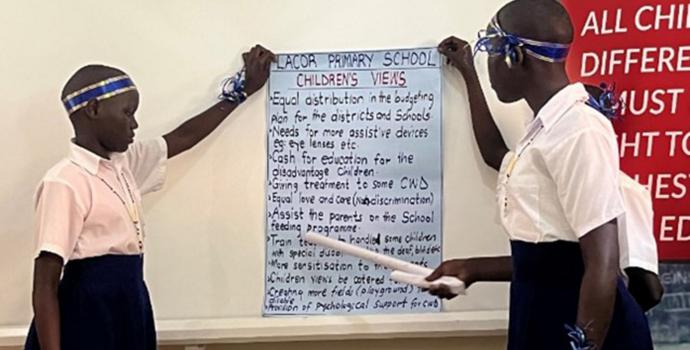A Climate Conscious Approach to Maternal Care; A Midwife's Perspective

I am Nakabuye Stella, a midwife with ten years of experience at Mukono General Hospital in Mukono District. As a midwife, I have witnessed firsthand the profound impact of climate change on the health and well-being of mothers and newborns in our community.
Our hospital, located in an urban area near industrial zones, faces challenges like noise pollution, air pollution from industrial activities, and seasonal flooding due to heavy rains. These environmental factors not only affect our work but also highlight the urgent need for sustainable healthcare practices.
In our efforts to support mothers through their breastfeeding journey, we have integrated climate-conscious strategies into every aspect of our care. At Mukono General Hospital, we are dedicated to supporting and empowering mothers through their breastfeeding journey, aligning with the global Baby-Friendly Hospital Initiative endorsed by WHO and UNICEF since 1991.
From antenatal education to postnatal support, our approach is designed to not only improve maternal and neonatal health but also promote environmental sustainability. For instance, we focus on educating mothers on personal hygiene and proper waste disposal of used sanitary products to prevent infections and environmental degradation.
We also practice and teach waste segregation at our facility to minimize harm to both the patients and the environment. During pregnancy, I provide personalized health education sessions that address the specific concerns of young mothers under 24.
We discuss the importance of breastfeeding not only for the health of their babies but also for the planet. In the labor and delivery room, we prioritize natural breastfeeding practices and discourage the use of pre-lactation feeds that can contribute to waste.
We educate mothers about the benefits of colostrum, the first milk rich in nutrients vital for newborns, and encourage immediate skin-to-skin contact to facilitate bonding and breastfeeding initiation. Postnatally, our support extends to promoting hydration and a protein-rich diet for mothers, essential for sustaining lactation.
We advocate for exclusive breastfeeding for six months, which not only benefits infant health but also reduces the demand for packaged milk products and their associated environmental impact. For mothers returning to work, we guide expressing and storing breast milk, promoting a breastfeeding-friendly workplace environment, and advocating for extended maternity leaves to support continued breastfeeding.
In cases of preterm births, we adapt our approach to meet the unique needs of these fragile infants. We teach mothers how to express milk and use alternative feeding methods like cup feeding, minimizing the use of single-use feeding equipment that contributes to waste. Our education on breastfeeding goes beyond health benefits; we also emphasize its positive impact on the environment.
By choosing breastfeeding, mothers contribute to reducing carbon emissions associated with formula production and packaging, as well as decreasing the use of resources like water and firewood. Empowering women with comprehensive sexual and reproductive health education is another crucial aspect of our work.
By providing information on contraception and advocating for reproductive rights, we empower women to make choices that not only benefit their health but also contribute to sustainable population growth and resilience in the face of climate change impacts.




